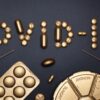Antibiotics are the drugs of choice when it comes to fighting bacterial infections. Without antibiotics, infections such as strep throat or tuberculosis can cause organ damage, even death. But while they’re destroying the bad bacteria that’s making us sick, they’re also doing a number on the beneficial bacteria that normally live in our gastrointestinal (GI) tract — leading to side effects. That disruption of our gut flora causes gastrointestinal complications ranging from mild to moderate antibiotic-associated diarrhea (AAD) to the more serious AAD caused by the toxin-producing bacterium Clostridium difficile (C. diff).
There’s nothing good about those side effects. But are antibiotics’ “alter ego” — probiotics — the miracle cure many make them made out to be?
Browse This Article
What Are Probiotics?
Probiotics are live, beneficial microorganisms, either bacteria or yeast-based, and there’s been a lot of attention paid lately to their purported ability to restore a healthy microbial balance in our GI tract. The research to date appears promising, with several recent meta-analyses — reviews of independent studies on a subject to identify trends — pointing to the efficacy of probiotics, particularly when it comes to preventing AAD. Most of the evaluated studies used a lactobacillus probiotic alone or in combination with another probiotic. The most studied, and commonly recommended, probiotics for the prevention of AAD are Lactobacillus GG (Culturelle) and Saccharomyces boulardii (Florastor).
A 2019 Cochrane review of studies of the effectiveness of probiotic treatment in children shows a statistically significant reduction in AAD. In a small study of adults in an intensive care unit (ICU) who were given antibiotics, researchers administered either a commercially-available probiotic dairy drink containing Lactobacillus casei (DanActive) or a placebo drink. Thirty days after the final antibiotic dose, researchers determined that 12.5% of those given probiotics developed AAD versus 31.3% of the placebo group. In addition, 6% of those given probiotics developed C. diff versus 18.75% of those given a placebo.
According to Sonia Ballal, MD, a pediatric gastroenterologist with Boston Children’s Hospital, the evidence is good that probiotic treatment is helpful in preventing AAD in children (whereas there’s less evidence for adults). “All in all, it’s the early days of probiotics, ” she says. “As the research continues, eventually we’ll be able to pinpoint which strain of probiotic to use for which indication.”
Some researchers contend that while some studies appear positive, they have been small, methodologically flawed or statistically insignificant. And a 2020 multicenter study in The Journal of Hospital Infection questions the use of probiotics for AAD prevention. A total of 1,127 patients, randomized to receive a probiotic drink or a placebo, found no significant difference in the rate of AAD between the two groups. However, the researchers point out that in recent years there have been major improvements in how antibiotics are handled in hospitals, contributing to reduced rates of AAD and other side effects. The study concludes that more research is needed before suggesting that the probiotic used has no role in AAD prevention.
No Harm… Maybe?
A study published in the journal Cell, examined whether giving probiotics after a course of antibiotics helps to reconstitute the gut microbiome. Results showed that it took months for the microbiome to return to a healthy biome colony in the probiotics group — an unexpected finding — while it took only days in a group that was given a fecal microbiome transplant containing the person’s own bacteria before being given an antibiotic. “Contrary to the current dogma that probiotics are harmless and benefit everyone, these results reveal a new potential adverse side effect of probiotic use with antibiotics that might even bring long-term consequences,” senior author Eran Elinav, MD, PhD, an immunologist at the Weizmann Institute of Science in Israel, said in a statement.
Using probiotics excessively can lead to an accumulation of bacteria in the small intestine that can cause brain fogginess, bloating and abdominal pain, according to a study published in Clinical and Translational Gastroenterology. Probiotics can quickly ferment sugars that pass through the gut, which can cause a buildup in hydrogen gas and methane, creating significant bloating, as well as D-lactic acid, which can interfere with normal cognition.
Be aware, too, that because probiotics are supplements, they aren’t approved or regulated by the FDA. There’s no way to know whether the probiotic you’re taking actually contains the strains and dosing stated on the package. As live organisms, there’s also potential risk of contamination. The American Gastroenterological Association (AGA) recommends buying from well-known companies that have been around for a long time. These companies are more likely to offer products that have been appropriately tested and studied.
By and large it appears that probiotics may have some risks but could help prevent antibiotic-associated diarrhea, says Ann Ouyang, MD, professor of medicine in the division of gastroenterology and hepatology at Penn State Health. “The microbiome is really important in our gastrointestinal health and probiotics will change the microbiome,” she explains.
However, she adds, much more research needs to be done to determine the overall long-term effects of probiotics on AAD. “Some probiotics may carry some antibiotic-resistant genes, so it’s not risk-free. It’s not a panacea,” she says.
Health organizations interpret data in different ways, but they generally tend to give probiotics’ efficacy for preventing AAD a “Maybe.” The National Institutes of Health Office of Dietary Supplements says some probiotic strains such as LGG and Saccharomyces boulardii might help reduce the risk of AAD in people younger than 65, especially when they start taking them within two days of starting antibiotics, but probiotics don’t work in older people.
Meanwhile, the Mayo Clinic evidence scale on supplements gives Lactobacillus acidophilus a “green light,” indicating that there is at least “some evidence that the product does what is claimed and that it’s considered generally safe when used as directed.”
“The data are pretty good that Lactobacillus Rhamnosus GG and Saccharomyces boulardii prevent antibiotic-associated diarrhea, ,” says Christina Surawicz, MD, professor of medicine at the University of Washington School of Medicine in Seattle. The AGA recommends against the use of probiotics for most digestive conditions due to insufficient evidence of benefits. That said, the group’s newest recommendations, published in their 2020 guidelines, support the use of certain probiotic formulas for prevention of C. diff infection in children and adults taking antibiotics.
While antibiotics aren’t to blame for all C. diff infections — other risk factors include age and being immunocompromised — broad spectrum antibiotics such as fluoroquinolones, cephalosporins, clindamycin, and penicillins are most likely to lead to a C. diff infection. In order to prevent C. diff, Surawicz recommends making sure antibiotics are only taken when needed, using the most narrow-spectrum antibiotic possible.
Alternatives to Probiotics for AAD
If you experience mild to moderate diarrhea while on antibiotics, try changing your eating habits until the symptoms pass. Experts recommend avoiding any fatty or fried foods, which can further loosen your stool. Increase your intake of clear fluids, preferably drinking eight to 10 glasses of water daily, to combat dehydration. As a short-term solution, doctors often suggest the BRAT diet, which stands for Bananas, Rice, Applesauce and Toast. Eating more soluble fiber or taking a fiber supplement, such as Metamucil, may be recommended to help bulk up your stool. Be careful to add the fiber slowly or you may also experience gas and bloating from adding too much, too soon.
The obvious alternative to probiotic supplements is fermented foods that contain healthy bacteria. Ballal recommends yogurt with live and active cultures to her pediatric patients. Surawicz recommends kefir, a fermented milk product that contains live bacteria and yeast, to her adult patients. Kefir may cause constipation and cramping, and is not recommended for use in children younger than 1 year of age.
Another good post-antibiotic move: up your intake of foods that naturally contain probiotics, such as the previously mentioned kefir, but also craft-made sauerkraut, kombucha, tempeh and kimchi. In short, make a point to invite lots of the good guys to your gut.
Who Shouldn’t Take Probiotics?
In December 2014, the Food and Drug Administration (FDA) issued a safety alert to health care providers urging caution in the use of dietary supplements containing live bacteria or yeast in patients who are immunocompromised, citing the death of a premature infant who developed gastrointestinal mucormycosis after receiving an in-hospital treatment of ABC Dophilus Powder (Solgar) that was tainted with the mold Rhizopus oryzae. In the safety alert, the FDA also urges health care providers who use dietary supplements containing live bacteria or yeast as drugs to file an Investigational New Drug Application (IND) for FDA review. Submitting an IND would require an FDA review of the content and purity of the product. If you have a compromised immune system, take immunosuppressant drugs, or have a venous catheter, you may be at a greater risk of becoming seriously ill from the live bacteria or yeast found in probiotic supplements, says Surawicz.
Probiotics may also pose a risk for those with certain sensitivities or intolerances, such as to gluten. Researchers at the Celiac Disease Center at Columbia University Medical Center found that 12 of the 22 top-selling probiotics had detectable traces of gluten, even though more than half of the 22 were labeled as gluten-free. Saccharomyces boulardii (Florastor), the second-most widely studied probiotic for use in AAD and C. diff, is a live yeast-based probiotic. Patients sensitive to yeast should talk to their doctor before taking this probiotic.
Probiotics are generally considered safe, particularly in healthy people, but there is a lack of solid research on side effects and serious adverse events associated with their use. A 2018 analysis of 384 studies on the safety and efficacy of probiotics and similar products aimed at modifying the gut flora found that 80% of the studies did not report the number of serious adverse events. Reporting in the Annals of Internal Medicine, the researchers noted that 98% of the studies did not reveal the number of people who withdrew from studies due to side effects, nor did they give a definition for adverse events. The researchers concluded that without reports on safety data, it can’t be broadly concluded that these interventions are safe.
Side effects may include mild stomach upset, diarrhea, or flatulence (passing gas) and bloating, mainly when probiotics are first started. If you experience these symptoms, proponents of probiotics recommend you lower the dose to allow your body to adjust to the changing, hopefully healthier, gut environment.







